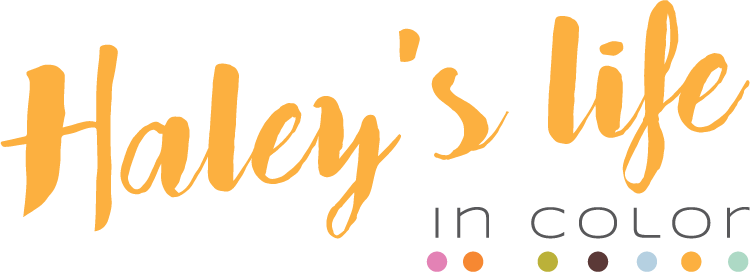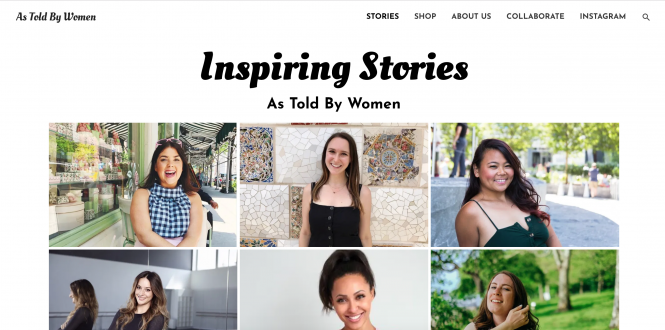Some people think that depression is just a “trend.” That it’s become not only mainstream and acceptable to say that you have depression, but that it has actually become cool. One quick scan of Twitter will reveal that half of our feeds are covered in jokes and memes about being depressed. And, just like with anything else, I’m sure there are individuals out there who post about it for attention or to be “trendy.”
Most of us, though, are not exaggerating or making it up.
Trust me when I tell you we wish we were.
I am one of the bubbliest, loudest, and most talkative people out there. And I know this because my friends and coworkers remind me constantly. (“Shhhh, Haley!”) I know that on the surface, I look like the last person battling depression. But, I am.
I’ve always been an anxious, high-strung person. Even when I was little. I actually had an absolutely paralyzing fear of being kidnapped for a several year period growing up. I was afraid of my own shadow. I got nervous about absolutely everything. As I got older, it manifested itself in over-the-top stress about schoolwork and after-school activities. I was a great student with near-perfect grades, but that didn’t stop me from freaking out about every single assignment. I was normal, well-adjusted and always had plenty of friends, but that didn’t stop me from getting stomachaches over social interactions.
I always thought my Type A approach was just my personality. And it many ways, it absolutely is—it’s part of me, and no amount of medication or therapy will change that. I’m a perfectionist, and that’s not a problem with my brain chemistry…it’s just me.
What wasn’t “just my personality” was the fact that my anxiety led to physical effects. While I mentioned stomachaches, it wasn’t until freshman year of college that the symptoms became so intense that they interrupted my life. It was fall of 2010, and I remember the feeling hitting me like a ton of bricks: I couldn’t breathe.
I thought something was wrong with my lungs or my heart. No matter what I did, I could not catch my breath. It was the most debilitating, helpless feeling in the world. I went to the health center and they assured me that nothing was physically wrong. That I should see a psychiatrist, because I was probably “just worked up.”
I was adamant that it was not mental. I went for a second opinion and got bloodwork done to rule out anything underlying. It all came back normal, and I was once again told it was “in my head.”
When I went to make an appointment at the free counseling center at my college, I was told they were booked for months and I could only be seen if I was experiencing suicidal thoughts. I wasn’t, so I was refused an appointment.
After a couple of weeks, my symptoms calmed down. I still had shortness of breath sometimes, but it wasn’t constant, so I could manage. It was just something I’d have to deal with, I decided.
Years passed, and I had become much more comfortable at school. I was happy and busy. I wasn’t perfect, of course, but I was overall successful socially and academically.
Then I graduated.
I moved home to Massachusetts and back into my parents’ house. Every morning, my mom would make me breakfast and serve it to me at our kitchen island. (Yes, I am aware that I am wildly spoiled.) And every morning, while being served my chocolate chip pancakes without a care in the world, I would stop being able to breathe.
Up until then, my parents didn’t think I needed to go see a professional. They insisted that I just needed to manage my anxiety better. “You just need to do yoga,” they’d say. They were against the idea of me being medicated for my anxiety. As far as they were concerned, I wasn’t “crazy,” so I didn’t need medicine. “We were stressed growing up, too, but we didn’t need pills!”
Of course I know that people have always had anxiety. But I wholeheartedly believe that depression and anxiety are more prevalent than ever before. Honestly, I think it has a lot to do with the hold that social media has on us. We’re always logged on, comparing ourselves to others. We can’t get away from work or personal drama because we have text and email on our phones. (Did FOMO even exist back in the day?)
After weeks of what I now understand to be panic attacks happening in front of my mom’s eyes, she realized that something was very wrong. We couldn’t figure out why these panic attacks were happening at my most relaxed moments—a leisurely breakfast, a restaurant dinner with my family, sitting by the TV. My mom half-joked that maybe being around the family was causing it, but everyone knows I am happiest around my family. Maybe it was my relationship with food, I wondered. After all, every meal is a math equation and science experiment when it comes to Type 1 Diabetes. However, I eventually ruled that out, too.
I finally found a psychiatrist nearby and made an appointment. During our first session, she diagnosed me with depression, anxiety, and mild OCD. Finally getting a diagnosis felt like a weight was lifted off of my shoulders. She prescribed me Prozac, a common SSRI. She warned me that it would take a few months to start working.
After a few months, it did! My panic attacks became much less frequent. Instead of multiple times per day, I only had a couple per week.
As my psychiatrist explained, though, I still didn’t have to live like that. We adjusted my dose a few times until I found the right level for me, and I’ve been on that dose ever since.
It may sound dramatic to those of you without mental illness, but I can honestly say that depression medication changed my entire life.
I can count the number of panic attacks I’ve had in the last several months on one hand. I don’t have to worry that I’m going to stop breathing in random, seemingly non-threatening situations.
While I still battle depression and anxiety, it’s now become a battle I can actually face. Medication is no quick fix: I still have dark moments and meltdowns and I still have to work hard at managing it every day. I still get nervous in many social situations and I still have irrational fears. I still want to just run away and never come back sometimes. I still feel glued to my bed some days.
But the important thing is that my “normal” days are so much more frequent than my tough ones.
While I have my medication management under control, I’ll admit that I haven’t done enough when it comes to actual therapy. It turns out it’s really hard to find a therapist you mesh well with—and for me, one that has a real grasp on the mental implications of Type 1 diabetes—but now that I’m getting settled in a new city I’m on the hunt to find one. I understand the importance of talking to someone, not just medicating.
As for the argument that this type of medication changes your personality, I’ll say this: I feel more “myself” than I have ever felt.
I am still bubbly and kind and loud…and yes, I’m still high-strung and Type A. Now, I’m just a healthier, more confident version of myself.
In fact, my personality is bolder than it’s ever been. It’s like the “me” that was held back by depression and anxiety has been let free. I take a lot less crap from people and I’m more open about how I feel. I say no to things that don’t feel right to me, and I focus more of my time and energy on the people that bring out the best in me.
Obviously it’s been a long process, and only part of this has been thanks to medication. I’ve done a LOT of work myself, and experience has done a lot of the work for me, too. But the thing that medication has done is allowed me to put that effort into myself.
I had this talk with one of my best friends, and I described my state now as “Full Haley.”
“I love full Haley,” he said. “Full Haley is my favorite.”
She’s mine, too.
Colorfully Yours,
Haley




